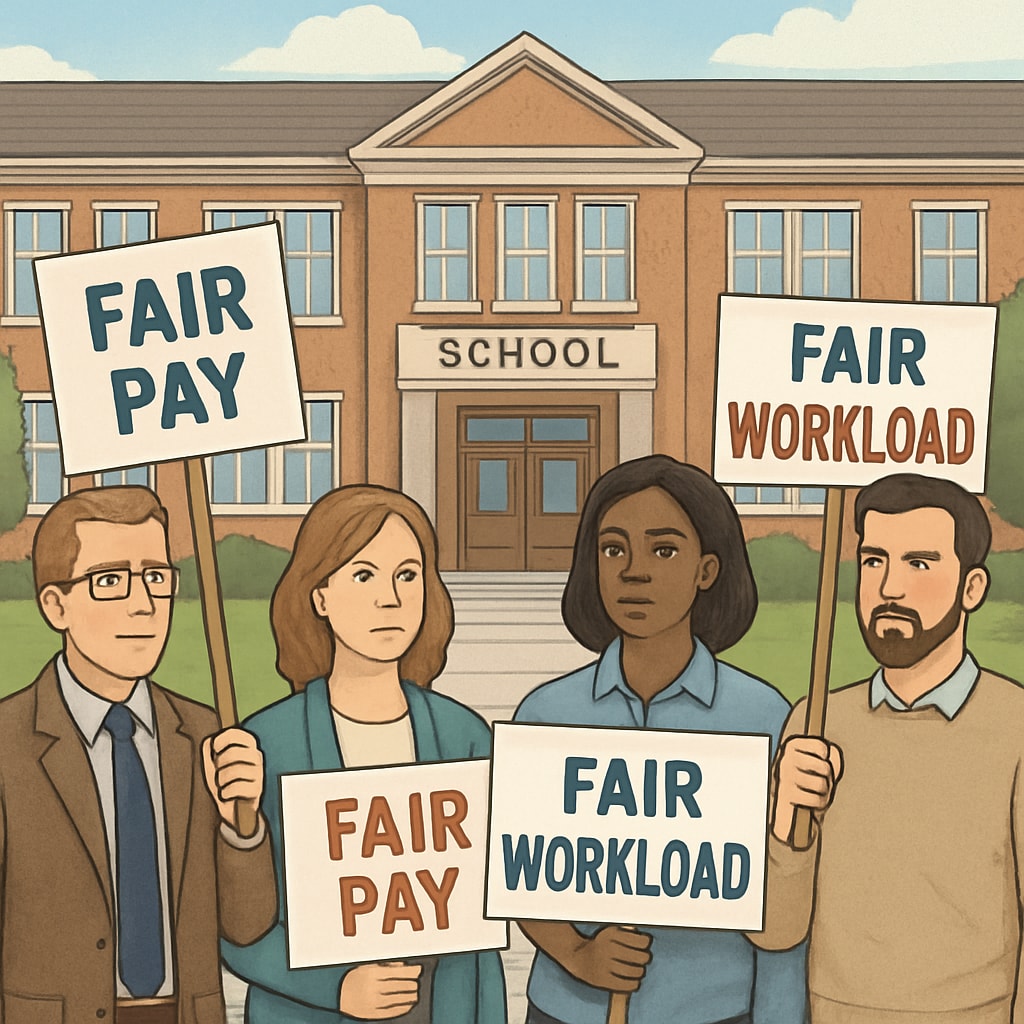In the U.S. education system, the issue of academic publishing quotas, part-time teachers, and unpaid research pressure has become a growing concern. Many part-time K12 educators are being required to meet research and publication demands without receiving additional compensation. This practice not only undermines teachers’ rights but also negatively impacts the quality of education delivered to students.
The Growing Problem of Academic Pressure on Part-Time Teachers
Part-time or contract-based teachers, particularly in K12 education, are often hired under the assumption that their primary role is teaching. However, some academic institutions impose research quotas on these educators, a practice more commonly associated with higher education faculty. While full-time professors may receive research stipends or reduced teaching loads to accommodate such expectations, part-time teachers are often left to shoulder these demands without any financial or logistical support.
This creates a twofold issue. First, part-time teachers are forced to work beyond their contracted responsibilities, essentially performing unpaid labor. Second, the additional burden detracts from their ability to focus on teaching, which is supposed to be their primary role. The cumulative effect is a decline in teaching quality and increased professional burnout.

Ethical Implications of Unpaid Research Demands
The ethical implications of unpaid research demands on part-time K12 teachers cannot be overstated. These educators are often hired at lower wages with fewer benefits compared to their full-time counterparts. Requiring them to perform unpaid research exploits their already precarious employment status, raising significant ethical concerns.
For example, the expectation to meet publication quotas without compensation violates the principle of fair labor practices. According to the Fair Labor Standards Act, employees should be fairly compensated for their work. Yet, many part-time teachers are expected to dedicate hours to research, editing, and submission processes—tasks that are not accounted for in their paychecks.
Additionally, this practice disproportionately affects underprivileged educators who may lack the resources to balance unpaid research with their teaching responsibilities. As a result, it perpetuates inequities within the teaching profession and compromises the ethical standards of educational institutions.

Addressing the Issue: Recommendations for Change
To address this systemic issue, several steps can be taken:
- Fair Compensation: Institutions should provide financial compensation or workload adjustments for part-time teachers asked to conduct research.
- Clear Contracts: Employment contracts should explicitly outline the responsibilities of part-time educators, including whether research is required.
- Advocacy and Support: Professional organizations and unions can play a critical role in advocating for fair labor practices.
- Focus on Teaching Quality: K12 institutions should prioritize teaching over research for part-time roles to maintain high educational standards.
By implementing these changes, academic institutions can better support their teachers and ensure that both educators and students thrive.
The Impact on Education Quality
Ultimately, the unpaid research pressure on part-time K12 teachers affects more than just the educators themselves. Students also bear the consequences of these unethical practices. When teachers are overburdened, their ability to deliver engaging, high-quality lessons diminishes. Furthermore, the stress and dissatisfaction caused by such working conditions may lead to higher turnover rates, disrupting the continuity of education for students.
As education systems strive to prepare students for a complex and competitive world, the need for dedicated and focused teachers has never been greater. Addressing the issue of unpaid research demands is essential for creating an environment where educators can excel and students can succeed.
In conclusion: The ethical dilemma surrounding academic publishing quotas, part-time teachers, and unpaid research pressure highlights the urgent need for reform in the U.S. education system. By ensuring fair labor practices and prioritizing teaching quality, academic institutions can create a more equitable and effective educational environment for all stakeholders.


